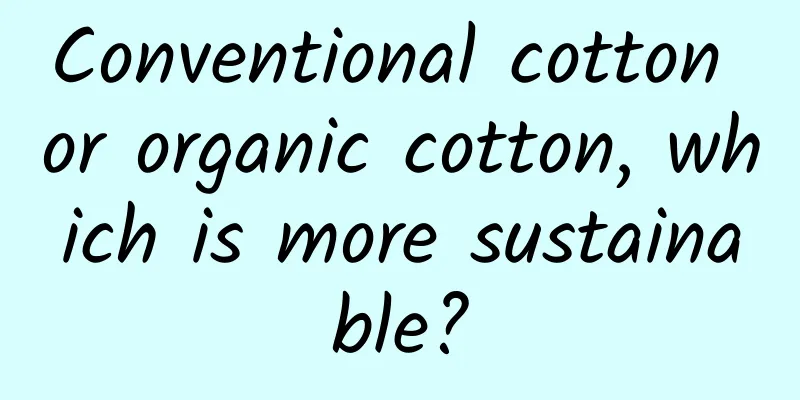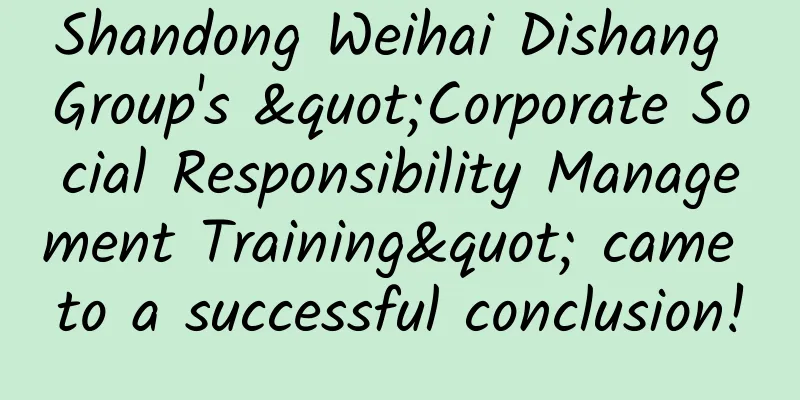Conventional cotton or organic cotton, which is more sustainable?

|
At a time when the world seems to be focusing on sustainability, consumers have different opinions on the terms that describe different types of cotton and what "organic cotton" actually means. In general, consumers rate both all-cotton and cotton-enriched apparel highly. Conventional cotton accounts for 99% of cotton apparel sold at retail, while organic cotton accounts for less than 1%. Therefore, in order to meet market demand, many brands and retailers are turning to conventionally grown cotton when searching for natural and sustainable fibers, especially as they realize that the distinction between organic and conventional cotton is often misunderstood in sustainability conversations and marketing messages. Brands considering whether to choose organic or conventionally sourced cotton for cotton apparel should know that 77% of consumers believe conventional cotton is safe for the environment, and 78% believe organic cotton is safe, according to the Cotton Incorporated and Cotton Council International 2021 Sustainability Study. Consumers also agree that any type of cotton is safer for the environment than man-made fibers. Notably, 66% of consumers have high-quality expectations for organic cotton, according to Cotton Incorporated’s 2019 Lifestyle Monitor™ Survey. Even more, though, (80%) have similarly high expectations for conventional cotton. According to the Lifestyles survey, conventional cotton also performs very well compared to man-made fiber clothing, with more than 80% of consumers (85%) saying cotton clothing is their favorite to wear, most comfortable (84%), softest (84%) and most sustainable (82%). When determining whether a garment is sustainable, 43% of consumers say they look to see if it is made from natural fibers, such as cotton, followed by organic fibers (34%), according to the 2021 Cotton Incorporated Sustainability Study. While researching organic cotton, I often came across articles stating: “It’s not chemically treated,” “It lasts longer than conventional cotton,” “It uses less water than conventional cotton.” The problem is that these articles have been shown to use outdated data or research, and therefore have skewed conclusions, according to the Transformer Foundation, a denim industry nonprofit that publishes and uses reliable information for continuous improvement in the fashion industry. "It is not appropriate to use outdated or inaccurate data, censor data or use data selectively, or even take data out of context to mislead consumers in order to argue or persuade an audience," the Transformer Foundation report said. In fact, conventional cotton generally does not require more water than organic cotton. In addition, organic cotton can also use chemicals during its growing and processing—the Global Organic Textile Standard approves nearly 26,000 different types of chemicals, some of which are allowed in the growing of organic cotton. As for any possible durability issues, no studies have shown that organic cotton is more durable than conventional varieties. “Both organic and conventional cotton can achieve better sustainability outcomes when a common set of best management practices are followed,” said Jesse Daystar , Ph.D., Vice President and Chief Sustainability Officer at Cotton Incorporated . “Both organic and conventional cotton have the ability to reduce some of their environmental impacts when produced responsibly. However, it’s important to remember that less than 1% of the world’s cotton production qualifies as organic. This means that the vast majority of cotton is grown conventionally with a more extensive management spectrum (e.g., the use of synthetic crop protection products and fertilizers), which typically produces more cotton per acre than conventional farming practices.” From August 2019 to July 2020, U.S. cotton farmers produced 19.9 million bales of conventional cotton, compared to about 32,000 bales of organic cotton. This helps explain why only 0.3% of apparel products are labeled organic, according to Cotton Incorporated’s Retail Monitor™ survey. Of course, there are differences between conventional and organic cotton. For example, organic cotton growers cannot use biotech seeds and, in most cases, synthetic pesticides unless other preferred methods are insufficient to prevent or control the target pest. Also, organic cotton must be grown on land that is free of banned substances for three years. Organic cotton is also third-party verified and certified by the USDA. Brands and manufacturers should understand that both responsibly produced organic and conventional cotton can reduce environmental impact to some extent. However, neither is inherently more sustainable than the other, and any cotton is a preferred sustainable choice for consumers over man-made fibers. “We believe misinformation is a key factor preventing us from moving in a positive direction,” the Transformer Foundation report reads. “It is critical for industry and society to understand the best available data and context on the environmental, social and economic impacts of different fibres and systems in the fashion industry so that best practices can be developed and implemented, industry can make informed choices, and farmers and other suppliers and manufacturers can be rewarded and encouraged to operate using more responsible practices, resulting in a more positive impact.” As consumer interest in sustainability continues to grow, and consumers continue to educate themselves when making purchasing decisions; brands and retailers have the opportunity to educate and promote their products to help consumers make informed choices during the purchasing process. Still worried about not passing the GRS certification? Don’t worry! Chaowang Consulting and Guidance has been engaged in factory inspection guidance and certification consulting for many years. It has rich experience and connections, is familiar with the process and steps of factory inspection and certification, and can help companies solve certification problems at any time, easily deal with them, and pass them smoothly. Consultation phone: 021-51029391! |
<<: Basic requirements for enterprise suppliers to apply for GRS on-site audit measures
>>: Why do traders also need GRS certification?
Recommend
What is 503? What are the advantages of 503?
What is Five-O-Three? Guangzhou 503 International...
2021 Latest! GRS Certification Requirements for Recycled Materials and Supply Chain
GRS certification is developed for the needs of t...
What is the export tax rebate rate? What is our country's export tax rebate rate policy?
What is the export tax rebate rate? The export ta...
BSCI factory audit standards
1. BSCI in Part B5 is about underage workers and ...
Questions about BSCI certification
Q: What is the scope of BSCI certification audit?...
Pinterest - "Twitter for pictures"
What is Pinterest? Pinterest uses a waterfall flo...
How is Shida International Logistics? What should I pay attention to when receiving goods from Shida International Logistics?
How about Shida International Logistics? Shida In...
2012 Wal-Mart SCS Factory Inspection Document List
Document Checklist Security Facility Security Poli...
What is eMAG? Tips for eMAG sellers!
What is eMAG? eMAG is the largest online retailer...
Comparison between HACCP certification and traditional certification technology
Traditional food safety control processes are gen...
What are the requirements for labeling for FLAX European Linen Certification/European Linen Certification?
B. Traceability chain description This standard a...
2009_ICTI Audit Document List
List of documents required for ICTI certification...
How is Ant Logistics? What services does Ant Logistics provide?
How about Ant Logistics? Chengdu Ant Logistics Co...
7 Steps to Drive Traffic to Your eBay Store
eBay has come a long way in online auctions. Toda...
eBay store has no traffic? Check out the experience of veteran sellers in attracting traffic from inside and outside the site
Compared with other cross-border e-commerce platf...









